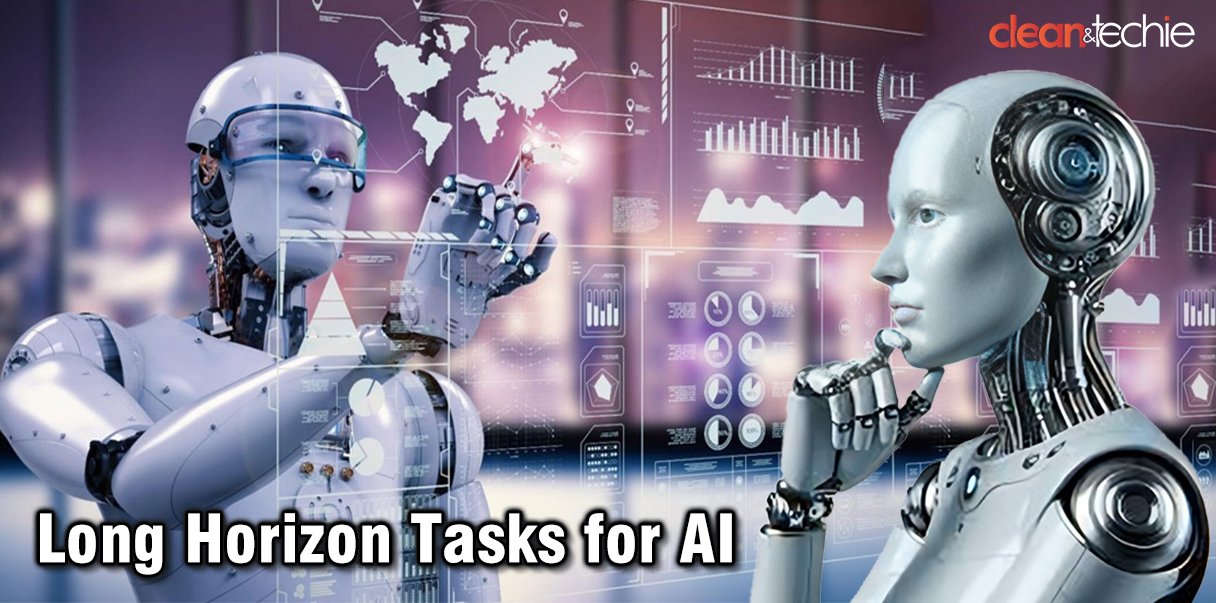Long Horizon Tasks: What are they?
Long horizon tasks in AI are a set of challenges that push the capabilities and functionalities of existing technologies to their boundaries. They require constant fundamental breakthroughs in data collection and availability, algorithms, and computational power.
Evolution of AI
The evolution of Artificial Intelligence (AI) from a just being theory of concepts to a transformative technology has been rapid. It has reshaped a spectrum of industries and our daily lives. While short-term improvements have been undeniably impressive, the true power of AI lies in its capacity to tackle long-horizon tasks. These tasks are complex for even a human brain. The multifaceted nature of challenges demands years, even decades, of research and development to overcome.
Here are some examples of Long Horizon Tasks
Human-level general intelligence (AGI)
Creating and developing AI systems that are capable of understanding and possessing complex requests. This will also involve learning and applying knowledge across a wide range of tasks at a human level or beyond.
AI for scientific discovery
AI is revolutionizing scientific research by accelerating drug discovery, improving climate models, and aiding in fields like materials science and astronomy. By analyzing vast datasets, predicting outcomes, and designing new solutions, AI is helping scientists make breakthroughs faster and more efficiently. However, addressing data quality, model interpretability, and ethical concerns is crucial for realizing AI’s full potential in science.
AI with Emotional Intelligence
Emotional intelligence in terms of AI aims to create machines that can understand, interpret, and respond to human emotions. It is about creating AI systems that can understand and respond to human emotions. This technology analyzes facial expressions, voice tone, and body language to gauge emotional states, enabling more natural and empathetic human-AI interactions. Potential applications include mental health support, customer service, and education.
Ensuring AI safety and ethics
One of the prime examples of long horizon tasks is focusing on developing robust frameworks for AI systems to prevent them from causing any harm. This encompasses aligning AI goals with human values, ensuring uniformity and transparency in the decision-making process, and mitigating biases to keep a check on discriminatory outcomes. Robust testing and monitoring are essential to identify and address potential risks before AI systems are deployed in the real world.
Overcoming Challenges of Long Horizon Tasks
Tackling long horizon tasks presents significant challenges. It is crucial that researchers and engineers find a workaround for the complex ethical, technical, and societal issues. issues.
Key challenges include:
Data scarcity and quality
Many long horizon tasks require vast amounts of high-quality data, which is often unavailable or difficult to obtain.
Computational limitations
The immense computational resources needed for these tasks can be prohibitively expensive and energy-intensive.
Ethical considerations
As AI becomes more powerful, addressing ethical concerns related to bias, privacy, and autonomy becomes increasingly critical.
Interdisciplinary collaboration
Successful long-horizon AI projects demand collaboration between experts from diverse fields, including computer science, mathematics, philosophy, and psychology.
The Impact of Long Horizon Tasks
Successfully addressing long horizon tasks has the potential to revolutionize society. For instance, achieving AGI could lead to advancements in healthcare, education, and transportation that were previously unimaginable. AI for scientific discovery could accelerate the development of new medicines and materials, addressing global challenges like climate change.
However, it’s essential to approach these challenges with caution and foresight. Responsible development and deployment of AI technologies are crucial to ensuring that benefits are maximized while risks are minimized. It is quite possible that the current AI tools may not designed and equipped for this.
The Road Ahead
While the path to realizing the full potential of AI is long and uncertain, progress in long horizon tasks is steadily being made. Governments, academia, and industry are investing heavily in AI research, fostering collaboration and innovation.
As AI continues to evolve, it’s crucial to maintain a focus on both short-term applications and long-term goals. By investing in research and development, cultivating talent, and addressing ethical challenges, we can pave the way for a future where AI benefits humanity in profound and positive ways.
Conclusion
In conclusion, long-horizon tasks for AI are the most ambitious and challenging frontier of artificial intelligence. Achieving breakthroughs in areas like human-level general intelligence or AI for scientific discovery requires sustained, collaborative research and a strong commitment to ethical development. The journey is full of obstacles, but the end results are satisfying. Success in these endeavors could lead to an AI-augmented future where humanity tackles its greatest challenges and unlocks unprecedented opportunities for progress.




